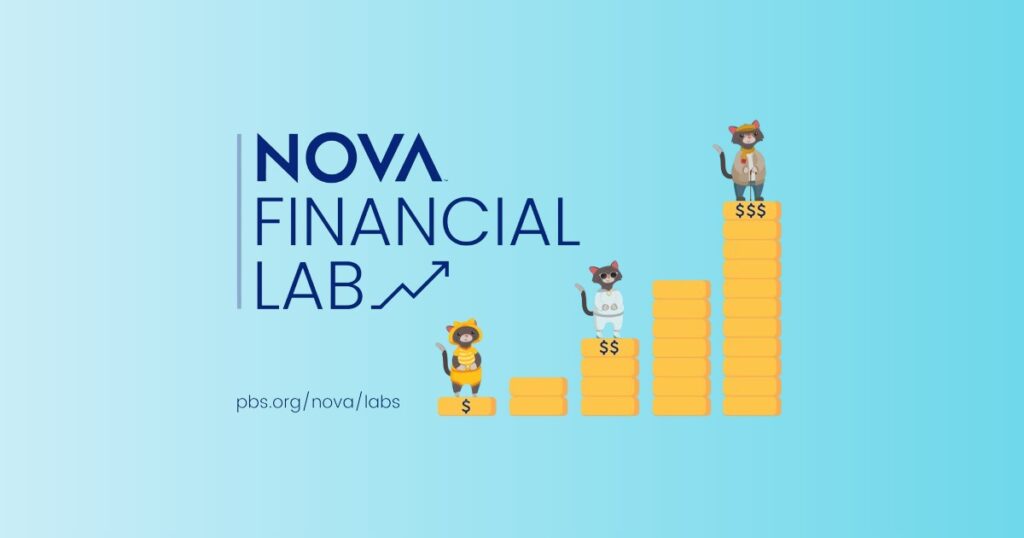
Content Partner
Grades 3-5

Don't have an account yet? Sign up for free
Don't have an account yet? Sign up for free


The purpose of this lesson is to help you explore the relationship between education and income. Income is earned from one’s resources. Those resources might be natural resources (oil field, farm land), capital resources (man-made resources that are used in the production of goods and services: computers, factories, sewing machines), entrepreneurship (the ability to organize the other factors to produce goods or services or labor.) Most people earn their income by selling their labor. The lesson will focus on the following question: “Why do some people earn more income from their labor than others?”

If You’re So Smart, Why Aren’t You Rich?
The purpose of this lesson is to help you explore the relationship between education and income. Income is earned from one’s resources. Those resources might be natural resources (oil field, farm land), capital resources (man-made resources that are used in the production of goods and services: computers, factories, sewing machines), entrepreneurship (the ability to organize the other factors to produce goods or services or labor.) Most people earn their income by selling their labor. The lesson will focus on the following question:
“Why do some people earn more income from their labor than others?”
Most people earn income from their labor They get a job and they get paid for the work
What income do you expect to be earning at age 22?
Each year, approximately 60 players join the National Basketball Association.
The NBA has 30 teams with 12-man rosters, for a total of 360 positions in professional
In 2013, there were 13 international players drafted.
In 2013, 16 college freshmen and sophomores were drafted.
The average work-life of a professional basketball player is about 6 year. (A pro usually begins around the age of 22 and is over around 28.)
The average salary (as of 2013) is $5.15 million.
Minimum salary (2013) is $490,180.
What are the costs and benefits of choosing to prepare for a high-paying professional basketball career?
You owe it to yourself to get as much information as you can.
Expose yourself to information about the economy and careers.
The odds of being on this list and earning a high income are a lot better than those of becoming a pro ball player…
Remember, change is the one thing you can count on. No one is wearing leisure suits (http://flashnews.com/news/9sys4sp4.htm : “Leisure Suit Inventor Unravels Reading Disorder”) anymore. Keep your eyes open.
No one can do this for you.
Go to thehttps://www.bls.gov/emp/chart-unemployment-earnings-education.htm to answer these questions.
What is the average weekly earnings of:
What level of education do you want?
Why do you think that people are willing to go to school for so many years?
What did you notice about the education requirements of these high-paying occupations?
Did more education seem to correlate with more income?
About Supply & Demand
The number of people with science degrees who are willing and able to work at current market wages is the supply. Higher wages will attract more people to the field; lower wages will encourage people to choose other options.
The number of people with science degrees that employers are willing and able to pay current market wages is the demand. At higher wages employers will demand fewer people with science degrees. At lower wages employers will demand more people with science degrees.
Does higher education guarantee a job or high income?
Visit Forbes and Read the article by Richard Vedder
Think about this:
What did you learn about the current wages and demand for astronomers?
What did you learn about the predicted wages and demand for astronomers?
What would you expect to happen in fields where demand is increasing?
What occupations are increasing in demand?
Now look at the at the fastest growing occupations one more time.
Why do you think that demand is increasing in computer-related fields?
Based on the information you’ve seen, which seems to be true? Wages are likely to go up most in fields with:
Why doesn’t everyone take a job as a computer engineer, physician or one of the other higher-paying occupations?
Since the skills one gets from education make such a difference in income, why doesn’t everyone get the skills?
List as many of the costs of getting more education and training that you can think of.
Did you think of all of these? Did you think of more?
Did you think of others?
Did you think of opportunity costs? Opportunity costs are things that one gives up as a result of having chosen something else. Can you think of any opportunity costs you’d have to pay in order to get advanced education?
Whatever income one might have earned, or the fun one might have had, or the sports one might have participated in, could be some of the opportunity costs of:
What other things did you think of?
*Even those who can afford some education programs often can’t get in because of the limited number of openings. At some physical therapy schools, for instance, there are more than 1,000 applications for 40 openings. Competition is keen.
These are the costs one pays to make an investment in one’s human capital.
One makes this investment in order to do work one enjoys, avoid work one doesn’t enjoy, and improve one’s lifetime earnings.
So far we know that:
Can you match an occupation with its monthly income?
Complete the following worksheet: Handout worksheet
Here is the answers sheet: Answers
Were salaries higher or lower than you expected?
(Remember, too, that these incomes are BEFORE taxes; actual take home pay will be considerably less.)
Did you find that you knew fewer people who were trained to do the high-skill jobs and more who could do the low-skill jobs?
If many people are willing and able to do a job at the market price, the supply is high. If few people are willing and able to do a job at that price, the supply is low. Supply and demand are important factors in determining income.
Education is a way of learning and practicing new skills. Rank the occupations in order of the number of years it would take to learn to do the job.
What correlation do you see between education and income?
Education is a way of investing in one’s own human capital.
How much education is enough?
Is a high school diploma that important?
Is a college degree worth that much more?
So, we see that although people with higher education and skills tend to earn more than people with less education and skills, higher education by itself doesn’t guarantee high income. What was the problem in this case? It seems that at current salaries, the number of people willing and able to be astronomers is higher than the number astronomers of astronomers demanded.
Demand for people with these skills is expected to increase. Think about the investment in human capital. Think about the supply of people with the skills to do those jobs. Which ones do you think will have rising salaries?
Brandy lives in a college town. She hears that a lot of students want to have papers typed. She decides to start a business typing papers, even though she doesn’t know how to type. She’s an entrepreneur and she has a computer and a printer. She does a market survey and finds that students are willing to pay no more than $2 per page. She looks for typists. How will she decide which typist to hire?
Brandy interviews 4 applicants, and gives each a timed typing test.
Can you help Brandy decide whom to hire?

Content Partner
Grades 3-5

Content Partner
Grades 6-8, 9-12

Grades K-2, 3-5

Grades K-2, 3-5
